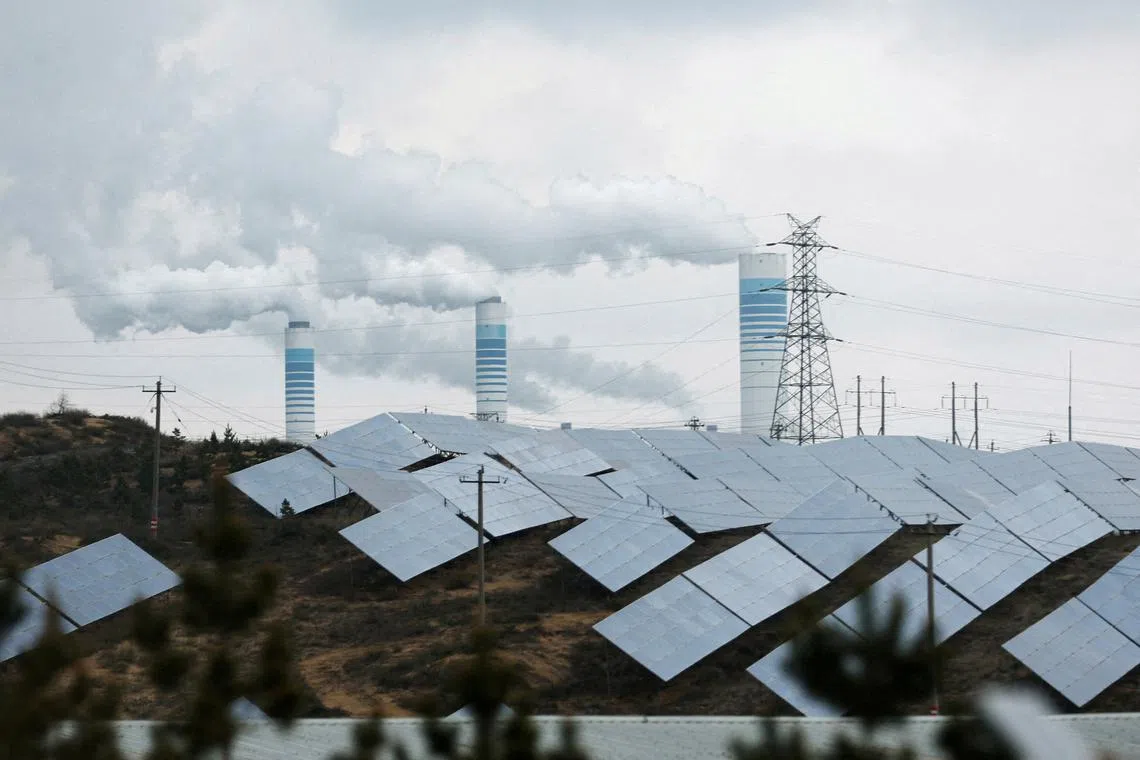China’s carbon emissions to drop in 2024 on clean energy boom
Sign up now: Get insights on Asia's fast-moving developments

Even as China deploys record amounts of clean energy, it is also building new coal power plants.
PHOTO: REUTERS
BEIJING – A surge in clean power generation will reduce carbon emissions in China in 2024 and could put the world’s biggest polluter on a path to sustained declines, according to a new report.
Installations of solar, wind, nuclear and hydro capacity in 2023 should generate enough electricity to power all of France, according to Mr Lauri Myllyvirta, author of the report and lead analyst with the Centre for Research on Energy and Clean Air. That will be more than enough to cover new power demand in China, leaving the nation less reliant on coal and the emissions that go with it.
Whether it is a one-year drop or a continued decline depends on China’s ability to maintain 2023’s level of clean energy deployment in the face of grid constraints and political opposition from the coal lobby, Mr Myllyvirta said. A sustained reduction would mean China’s emissions peaking a full seven years before its 2030 target under the Paris Agreement.
“If coal interests fail to stall the expansion of China’s wind and solar capacity, then low-carbon energy growth would be sufficient to cover rising electricity demand beyond 2024,” Mr Myllyvirta said. “This would push fossil fuel use – and emissions – into an extended period of structural decline.”
Clean Incentive
To be sure, even as China deploys record amounts of clean energy, it is also building new coal power plants. Its emissions during the third quarter rose 4.7 per cent from the same period in 2022, when strict Covid-zero policies were constraining travel and economic activity, Mr Myllyvirta said.
While coal miners have long had outsized political sway in China, the country’s burgeoning clean energy manufacturing sectors should give Beijing more incentive to stay the course with renewables deployment, according to the report.
The COP28 climate summit in Dubai
“The unprecedented investment in low-carbon technology manufacturing supply chains also means that China has, in effect, placed a major economic and financial bet on the success of the global energy transition, which could affect its diplomatic positioning,” Mr Myllyvirta said. BLOOMBERG


